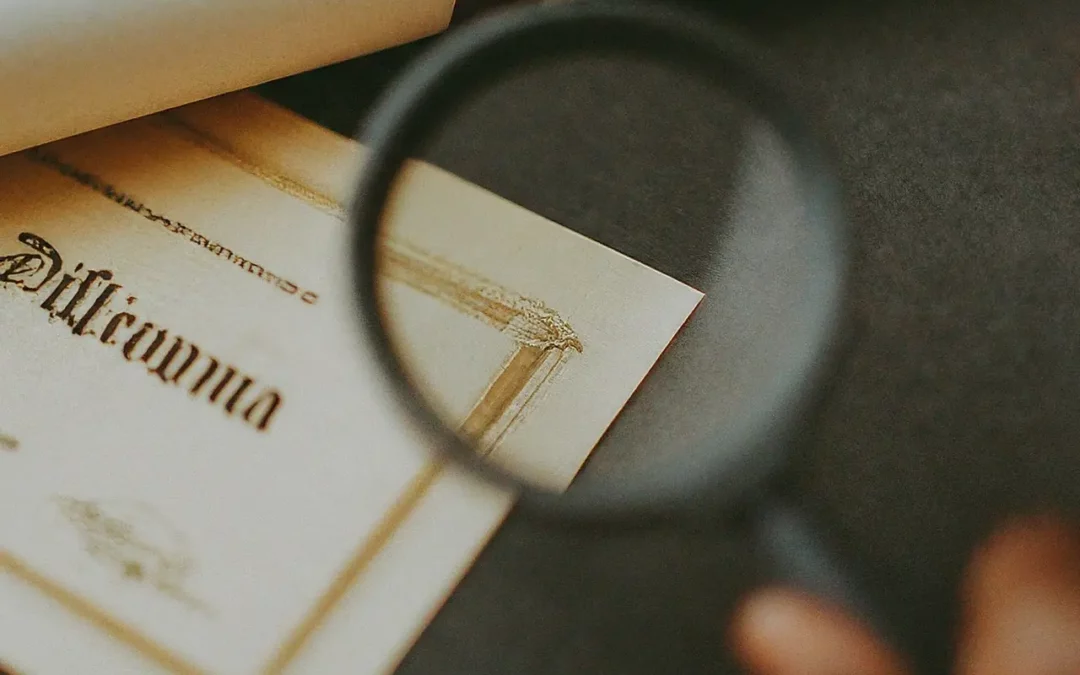
by World Document Services | Jul 3, 2024 | Most Viewed
In a world where the educational landscape stretches beyond borders, university certificate verification emerges as a crucial bridge for academic and professional endeavors abroad. This guide illuminates the path for students and professionals navigating the oftentimes complex process, ensuring their qualifications are recognized and respected worldwide.
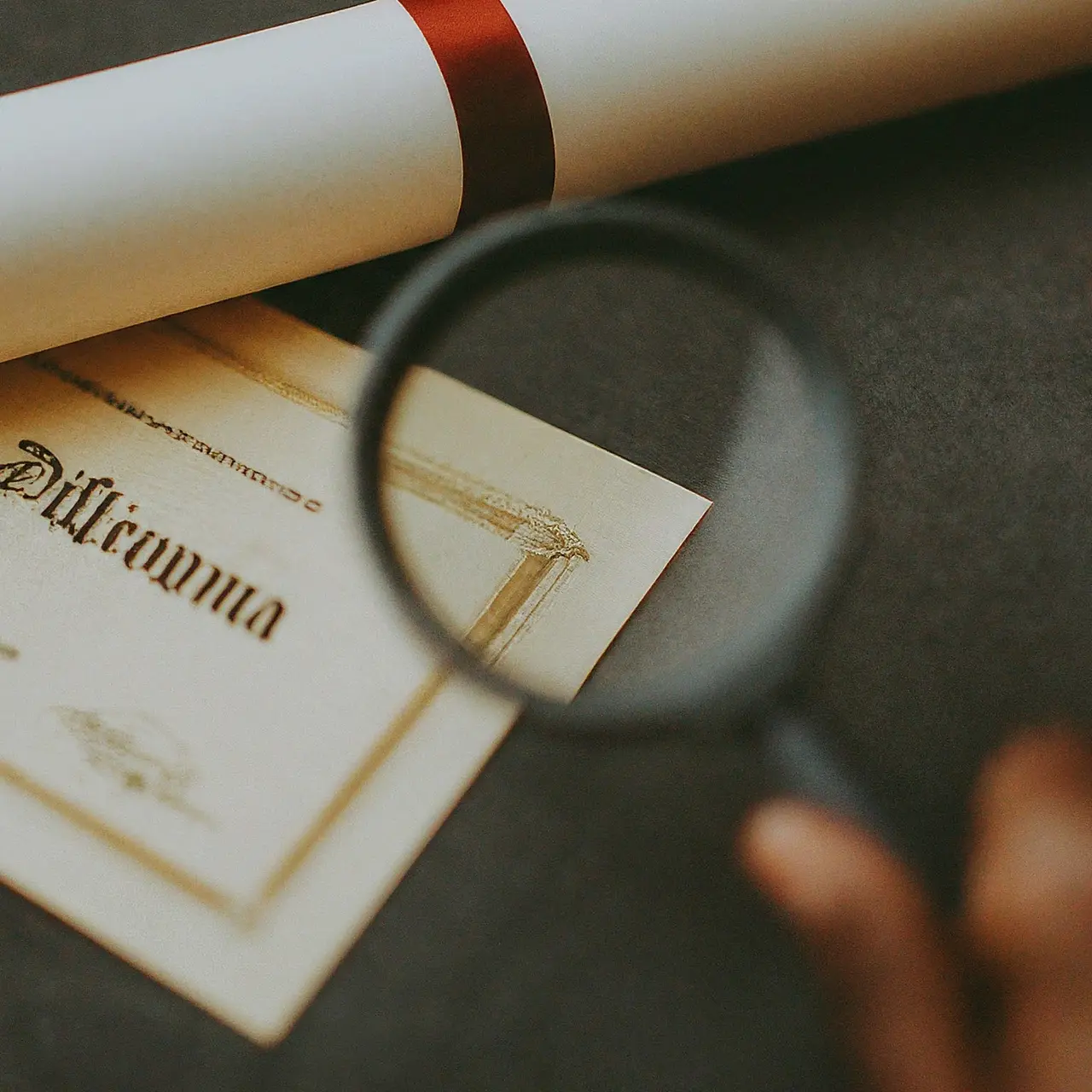
Understanding the Importance of University Certificate Verification
Embarking on an educational journey overseas is both exciting and daunting. One of the paramount steps in this journey is university certificate verification, a critical procedure that ensures your academic achievements are recognized on an international scale. This process not only validates your qualifications but also safeguards against the rising tide of fraudulent certificates, preserving the integrity of your academic and professional identity.
Need help with your University Certificate Verification? Contact Us Now!
Moreover, university certificate verification lays the foundational stone for gaining admission into prestigious institutions and is often a prerequisite for employment in highly-regulated sectors overseas. Without this crucial endorsement, students might find themselves at a significant disadvantage, struggling to traverse academic and professional landscapes abroad.
The Step-by-Step Process of University Certificate Verification
The journey of university certificate verification begins with understanding the specific requirements of the destination country and institution. Typically, this process involves submitting original educational documents or notarized copies to a verification agency or directly to the institution, which then cross-references these documents with the issuing educational bodies.
Students are often required to provide detailed personal information and consent for institutions to verify their academic records. This can include a lengthy exchange of emails, submission of additional documents, and sometimes, direct liaison with educational institutions in the country of origin. While the process might seem cumbersome, it is a crucial step towards ensuring that qualifications are recognized globally.
Read more: Streamlining Your University Certificate Verification Process: Tips and Tricks for Students and Professionals
Common Challenges in University Certificate Verification for Overseas Students
One of the primary challenges in the university certificate verification process is the varying standards and requirements across different countries and institutions. This lack of a standardized procedure can lead to confusion and delays, with students often finding themselves navigating a maze of paperwork and bureaucratic hurdles.
Another significant challenge is the risk of falling prey to fraudulent agencies that prey on unsuspecting students. These entities offer false guarantees of expedited verification processes for a fee, only to deliver counterfeit certifications or no service at all, jeopardizing the student’s academic and professional future.
In recent years, digital platforms have emerged as game-changers in streamlining the university certificate verification process. These technologies offer a more efficient, secure, and transparent mechanism for validating academic credentials, significantly reducing the time and effort required for verification.
Blockchain technology, for instance, is revolutionizing this process by providing a tamper-proof digital ledger for academic credentials. Students can now share their verified certificates with institutions around the world without the fear of misplacement or forgery, facilitating a more seamless transition to international education and employment.
Read more: Education Certificate Attestation: A Step-by-Step Process for Students and Professionals
Choosing the Right Agency for University Certificate Verification
Selecting a reputable agency for university certificate verification is a critical decision that can significantly impact your academic and professional trajectory. It is essential to conduct thorough research, seeking recommendations from fellow students and professionals, and verifying the credentials and accreditation of the agency.
Look for agencies with a proven track record, transparent processes, and a robust privacy policy to ensure the security of your personal and academic information. Remember, the right agency will not only expedite the verification process but also provide peace of mind as you embark on your overseas academic journey.
Bridging Academia Across Borders
As the globalization of education continues to expand, the process of university certificate verification becomes an indispensable step for students and professionals aiming to study or work abroad. It ensures the authenticity of qualifications, opening doors to global opportunities and fostering an environment of trust and excellence in the international academic and professional community.
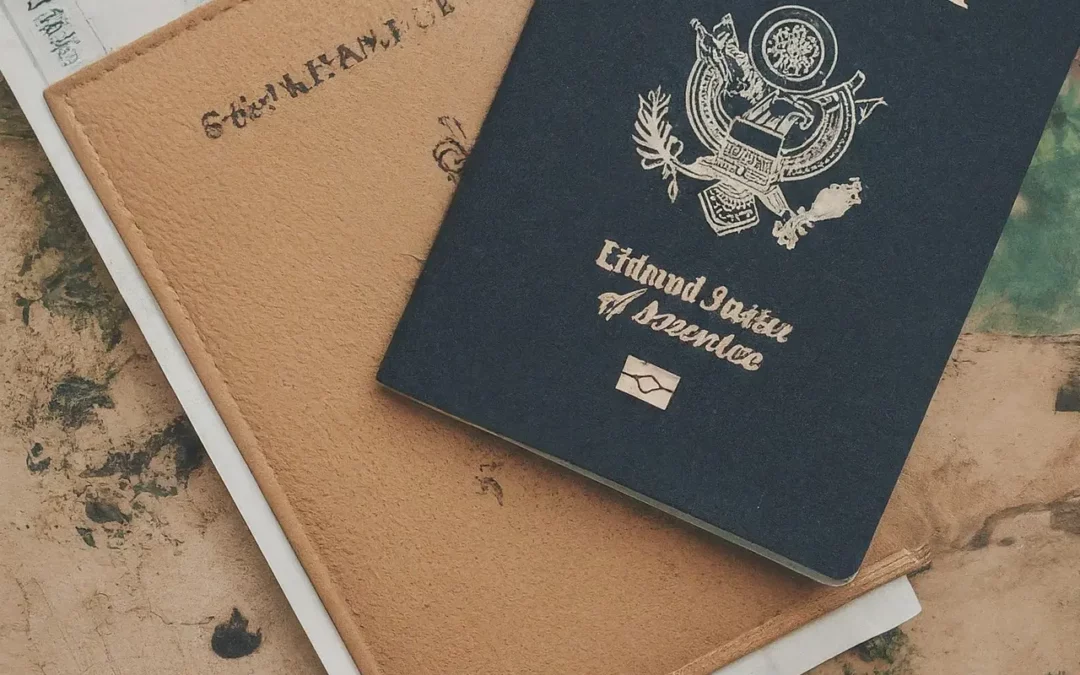
by World Document Services | Jul 1, 2024 | Most Viewed
Embarking on a migration journey can often seem like navigating a labyrinth, filled with complex procedures and obscure requirements. World document services emerge as a guiding light, illuminating the path to a new life with ease and assurance. Discover how these essential services can simplify your migration process, making it smoother and more accessible.
Need help with your Migration Certificate? Contact Us Now!
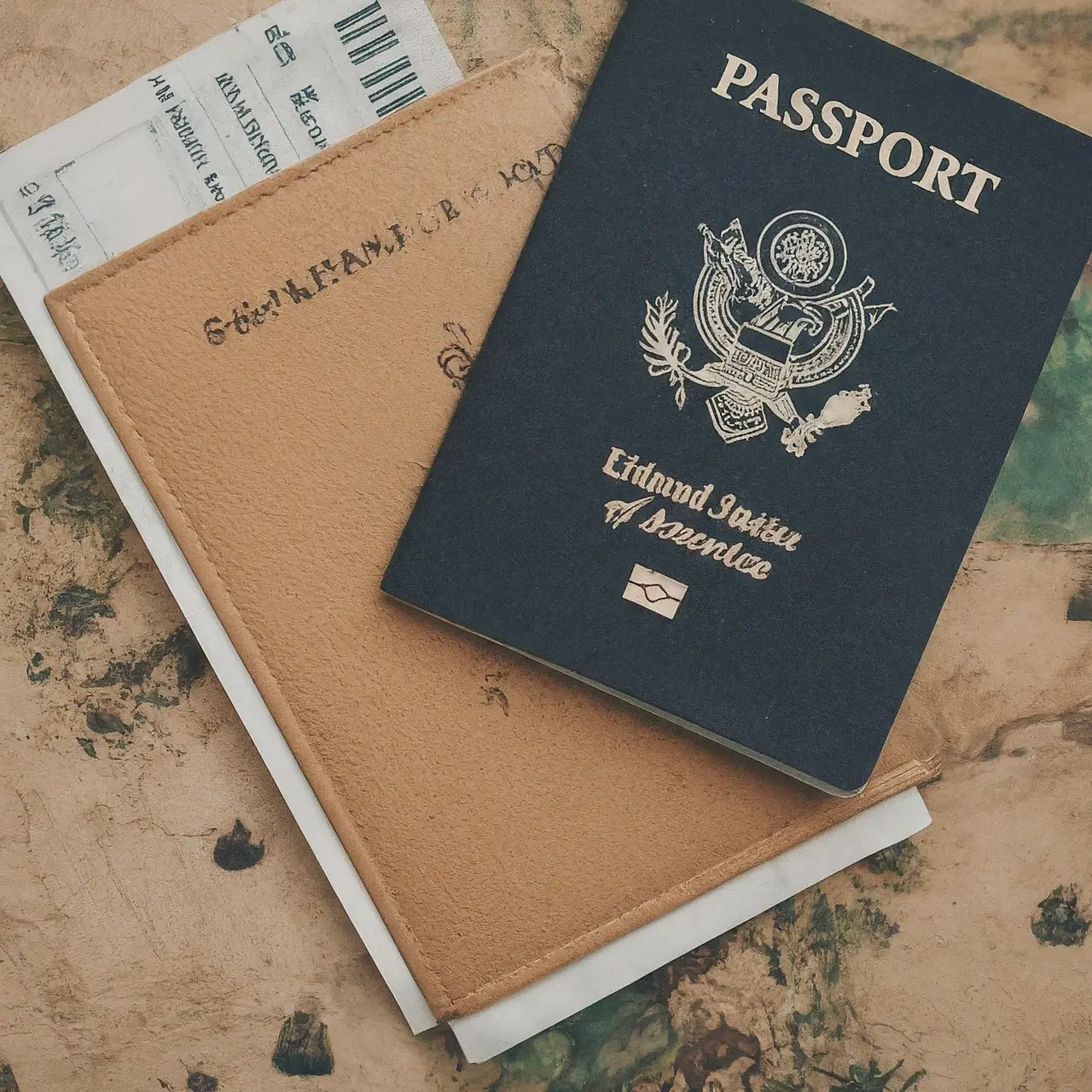
Introduction to World Document Services
The concept of migrating can seem overwhelming due to the sheer volume of documentation and procedures required. This is where world document services come into play, offering a beacon of hope. These services provide critical assistance with the complex tapestry of paperwork and legalities that underpin the migration process. By navigating the intricacies of visa applications, translation services, and document legalization, they ensure a smoother transition for individuals and families embarking on the journey to a new life.
Read more: The Importance of Educational Credential Evaluation in Academic and Professional Success
How World Document Services Facilitate Migration Processes
At the heart of the migration journey is the need for precise and accurate documentation. World document services specialize in the verification and validation of personal and professional documents which are crucial for immigration applications. From notarization to apostilles, these services guarantee that your documents meet the destination country’s legal requirements. The expertise of world document services in navigating these complex requirements saves migrants from the potential pitfalls of the immigration process.
Moreover, migration often involves presenting documents to foreign authorities in a language different from the original issuance. Translation services provided by world document specialists are vital in ensuring that all documents are accurately translated and certified for use in immigration applications. This meticulous attention to detail can be the difference between acceptance and rejection in the immigration process.
Key World Document Services for Migrants
The spectrum of world document services for migrants is broad, addressing various needs throughout the migration journey. Key services include the translation and certification of personal documents such as birth certificates, marriage licenses, and academic qualifications. Equally important are the services that facilitate the recognition of professional qualifications abroad, ensuring that migrants can pursue their careers without unnecessary barriers.
Additionally, specialized legal support services provide guidance with visa applications, appeals, and navigating the complex realm of immigration law. These services are indispensable for those facing the daunting task of understanding and complying with the legal requirements of their destination country.
Benefits of Using World Document Services During Migration
Employing world document services during your migration journey comes with numerous benefits. Primarily, it significantly reduces the stress and uncertainty surrounding the visa application and settlement process. By entrusting critical document handling to experts, migrants can focus on the other essential aspects of their relocation, such as family and employment.
Moreover, access to world document services enhances the efficiency of the migration process. The expertise and insider knowledge of these services can shorten processing times, avoid common errors, and streamline the entire migration pathway. In this way, world document services not only accelerate the journey but also increase the likelihood of a successful relocation.
Read more: What is the importance of CRS for Canada PR?
Real-world Success Stories of Migrants Using World Document Services
Personal testimonies abound from migrants who have utilized world document services to facilitate their move. One compelling story involves a young engineer from India who was able to navigate the complex Australian immigration system with the help of specialized document services, culminating in a successful permanent residency application. These narratives highlight not just the practical benefits but also the profound impact on individuals’ lives, enabling them to achieve their dreams of starting anew in a foreign land.
Choosing the Right World Document Service for Your Needs
Selecting the appropriate world document service is pivotal to ensuring a smooth migration process. It’s essential to seek out services with a proven track record, specializing in the country to which you are migrating. Recommendations from friends and online reviews can provide valuable insights. Furthermore, transparency in pricing and a clear explanation of services offered are critical factors to consider, ensuring that there are no surprises down the line.
Streamlining Your Journey to a New Horizon
As we’ve explored the multifaceted role of world document services in the migration journey, it’s clear that they are not just facilitators but the backbone of a successful relocation. These services transform the daunting into the achievable, providing clarity, efficiency, and peace of mind. Whether it’s through streamlining legal paperwork, ensuring your qualifications are recognized, or making sure your story is heard, world document services are the unsung heroes of migration. Embrace them as your ally, and you’ll find the path to your new home is brighter and clear.
by World Document Services | Jun 30, 2024 | Transcripts from University
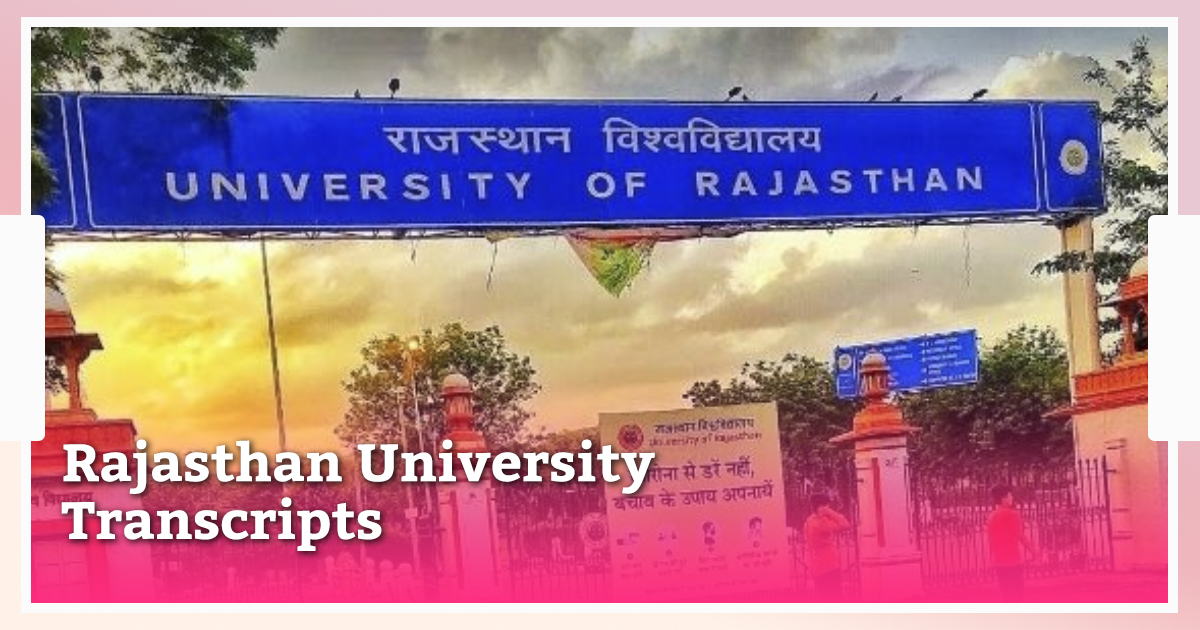
The University of Rajasthan, located in the historic city of Jaipur, is renowned for its extensive range of undergraduate, postgraduate, and doctoral programs. For students and alumni aiming to further their education or seek global career opportunities, obtaining official transcripts is essential. This guide will walk you through the process of procuring transcripts from the University of Rajasthan and highlight how World Document Services (WDS) can streamline this process.
Need help with your Rajasthan University Transcript? Contact Us Now!
Why Transcripts from the University of Rajasthan are Essential
Transcripts are official records that provide a detailed account of a student’s academic performance, including courses taken, grades received, and degrees conferred. These documents are crucial for:
- Further Education: Required for applications to universities and colleges for higher studies.
- Employment: Employers often request transcripts to verify educational qualifications.
- Immigration: Necessary for visa applications and other immigration processes that require proof of educational credentials.
Read more: Steps to Take if Your DU Transcripts Are Delayed: A Troubleshooting Guide
Steps to Obtain Transcripts from the University of Rajasthan
Step 1: Prepare Your Documents
Ensure you have all the necessary documents ready, including:
- Copies of all semester mark sheets.
- Degree certificate.
- Valid identification proof (such as Aadhaar card, passport, etc.).
Step 2: Access the Transcript Request Form
Visit the official University of Rajasthan website to download the transcript request form. Alternatively, you can obtain this form from the university’s registrar office.
Step 3: Fill Out the Application Form
Accurately complete the application form with all required details. Double-check for accuracy to avoid any delays in processing.
Step 4: Submit the Application
Submit the completed application form along with the necessary documents either online, if the university offers this option, or by mailing them to the university’s registrar office.
Step 5: Pay the Transcript Fee
A fee is required to process the transcript request. This can usually be paid online through the university’s payment portal or via a bank draft. Retain the payment receipt for future reference.
Step 6: Processing and Verification
The university will process your application, which typically takes a few weeks. Ensure you have provided all required information to avoid delays.
Step 7: Collection or Delivery
Once processed, the transcripts can be collected in person or sent directly to the specified address or institution. Specify your preferred delivery method in your application.
Obtaining Duplicate Marksheet and Degree Certificate
For those needing duplicate marksheets or degree certificates, follow these steps:
- File a Report: Report the loss or damage of your documents to the police if necessary.
- Complete an Application: Fill out the duplicate document request form available on the University of Rajasthan website or from the registrar office.
- Submit Supporting Documents: Include a copy of the police report (if applicable), identification proof, and an affidavit stating the reason for the request.
- Pay the Required Fee: Submit the fee for issuing duplicate documents.
- Processing Time: Allow several weeks for the university to process your request and issue the duplicates.
Read more: Get Transcripts from Rani Durgavati University
The Role of World Document Services (WDS)
World Document Services can greatly enhance the ease and efficiency of obtaining transcripts and other academic documents from the University of Rajasthan. Here’s how WDS can help:
- Complete Management: WDS handles everything from form submission to document collection and delivery.
- Faster Processing: With strong relationships with university officials, WDS ensures quicker processing times.
- Secure Delivery: WDS guarantees the safe and timely delivery of your documents to the specified destination.
Frequently Asked Questions (FAQs)
Q1: How long does it take to get transcripts from the University of Rajasthan?
A: The processing time typically takes a few weeks, but it can vary depending on the university’s workload.
Q2: Can I apply for University of Rajasthan transcripts online?
A: Yes, you can apply online through the university’s official website if they offer this service. Otherwise, you can mail your application to the registrar’s office.
Q3: What should I do if I lose my marksheet or degree certificate?
A: You should file a police report and then apply for a duplicate document through the university by filling out the necessary forms and submitting required documents.
Q4: How can World Document Services help me get my transcripts faster?
A: WDS handles the entire process from form submission to document delivery, leveraging strong university connections to expedite processing times.
Q5: What payment methods are accepted for transcript fees?
A: Payments can usually be made online via the university’s payment portal or through a bank draft. Always check the university’s specific payment guidelines.
Conclusion
Obtaining transcripts and other academic records from the University of Rajasthan is a crucial step for many students and alumni. By following the steps outlined above and leveraging the services of World Document Services, you can ensure a smooth, efficient, and hassle-free process. Whether you’re advancing your education, starting a new job, or moving abroad, having the right documents is essential, and WDS is here to support you every step of the way.
Download the World Document Services App
For a more seamless experience, download the World Document Services mobile app to apply for transcripts and track the progress of your application:
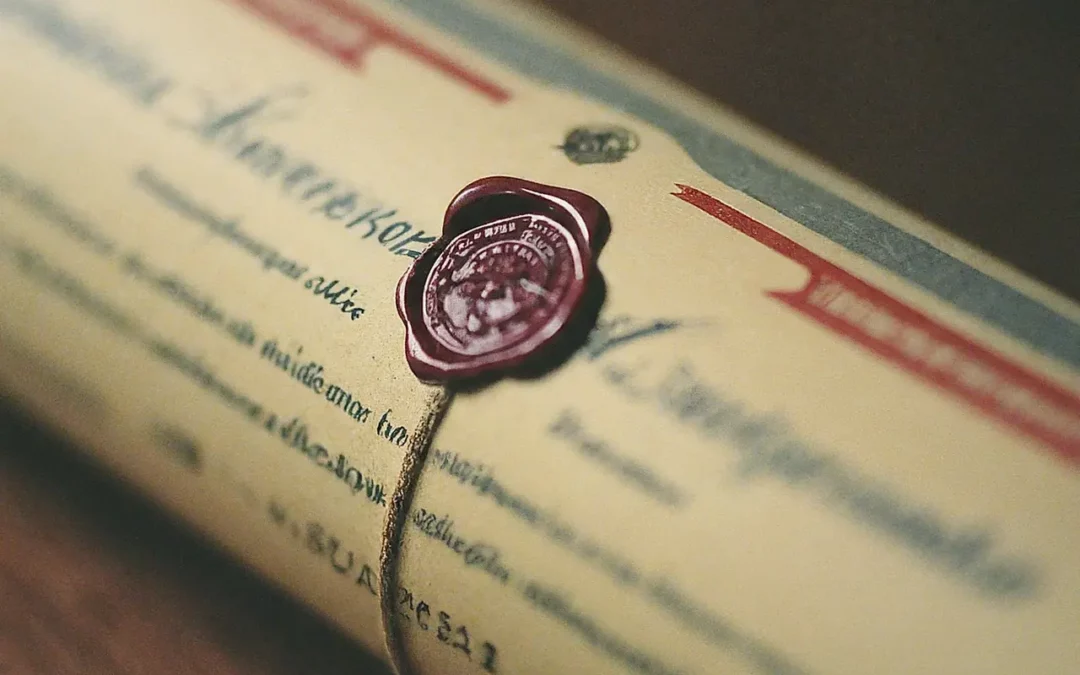
by World Document Services | Jun 30, 2024 | Most Viewed
Navigating the maze of university certificate verification can be a daunting task for both recent graduates and seasoned professionals. In an era where authenticity and legitimacy are paramount, ensuring your credentials are verified swiftly and accurately is more important than ever. This guide aims to simplify the verification process, offering insightful tips and modern solutions to streamline what can often be a bureaucratic and time-consuming task.
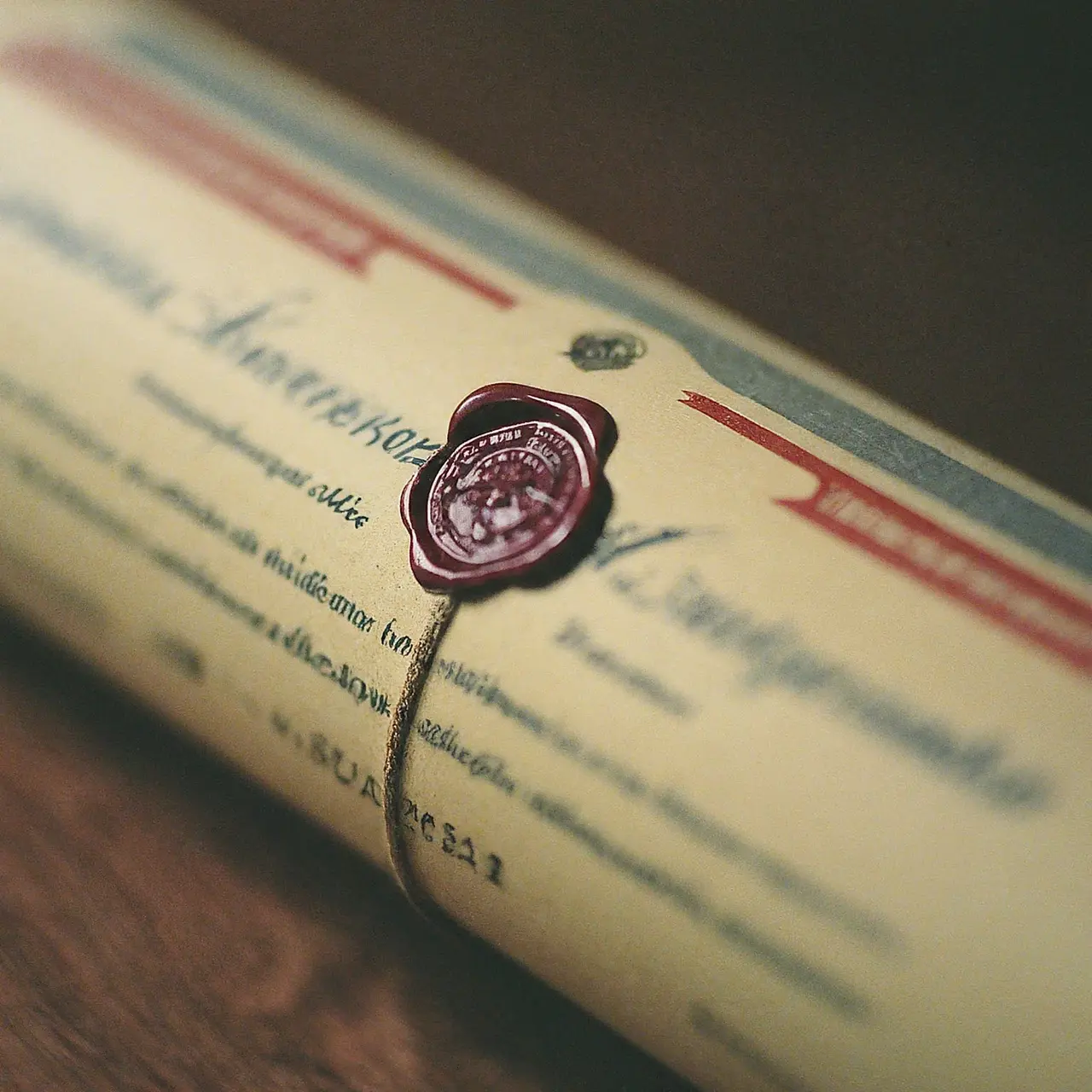
Understanding the Importance of University Certificate Verification
Understanding why verification of university certificates is crucial forms the backbone of any pursuit in higher education and professional careers. It’s not just about ticking a box; it involves establishing the authenticity of your academic achievements in a world where fraudulent claims are unfortunately not uncommon. Through rigorous verification, educational institutions and employers ensure that qualifications are legitimate, which in turn upholds the integrity of the academic and professional communities.
Need help with your University Transcript? Contact Us Now!
Moreover, verified certificates act as a passport in the competitive job market, creating opportunities that span borders. International organizations and prestigious firms often require a thorough check of credentials to safeguard against fraudulent qualifications, underlining the global significance of a verified academic background.
Read more: Education Certificate Attestation: A Step-by-Step Process for Students and Professionals
The Traditional Verification Process and Its Challenges
Traditionally, verifying academic certificates has been a paperwork-heavy process, fraught with inefficiencies and long waiting periods. Applicants often find themselves navigating a labyrinth of administrative protocols, submitting request forms to university registrars, and enduring weeks, or sometimes months, for a response. This can be particularly challenging for those under tight deadlines for job applications or further studies.
Apart from the time-consuming nature, there’s also the risk of documents getting lost in transit, further complicating an already tedious process. For international verifications, differences in languages and legal requirements add another layer of complexity, making it imperative to seek solutions that can streamline these challenges effectively.
Online Verification Services: A Modern Solution
In response to the challenges posed by traditional methods, online verification services have emerged as a game-changer. Platforms such as National Student Clearinghouse in the USA or the Digitary Core globally offer seamless, digital verification of academic credentials. These services not only reduce the verification timeline to mere days but also eliminate geographical and logistical barriers, connecting institutions, employers, and graduates through a secure, digital network.
Steps to Simplify Your Verification Process
The first step in simplifying the verification process is understanding the requirements of the requesting party. Whether it’s an employer, a visa application, or further studies, knowing exactly what’s needed can save a great deal of time. Following this, utilizing online verification services where available can expedite the process.
Keeping digital copies of your certificates in a secure yet accessible location will also streamline the process. Services like cloud storage or secure e-mail archives ensure that you’re prepared for verification requests at a moment’s notice. Furthermore, maintaining contact with your university’s registrar office can be beneficial for any assistance or documentation that may be required down the line.
Read more: What is Embassy Certificate Attestation And How To Apply
Tips for Students and Professionals to Streamline Verification
For students about to graduate, preemptively registering with online verification services can save a significant amount of time post-graduation. It’s also wise to clarify with your university the process for obtaining verified digital copies of your certificates before you need them.
Professionals seeking to verify their qualifications should keep their contact information updated with their alma mater and the verification services they’re registered with. Additionally, understanding the specific verification processes in different countries can immensely benefit those looking to work or study abroad.
Streamlining Success
As we demystify the university certificate verification process, it becomes clear that embracing modern solutions and being proactive in your approach can significantly ease the burden. By staying informed and utilizing online resources, both students and professionals can navigate verification with confidence, ensuring their qualifications are recognized and respected in the professional world. Remember, successful verification is a stepping stone to showcasing your hard-earned credentials and advancing in your career.
by World Document Services | Jun 27, 2024 | Transcripts from University
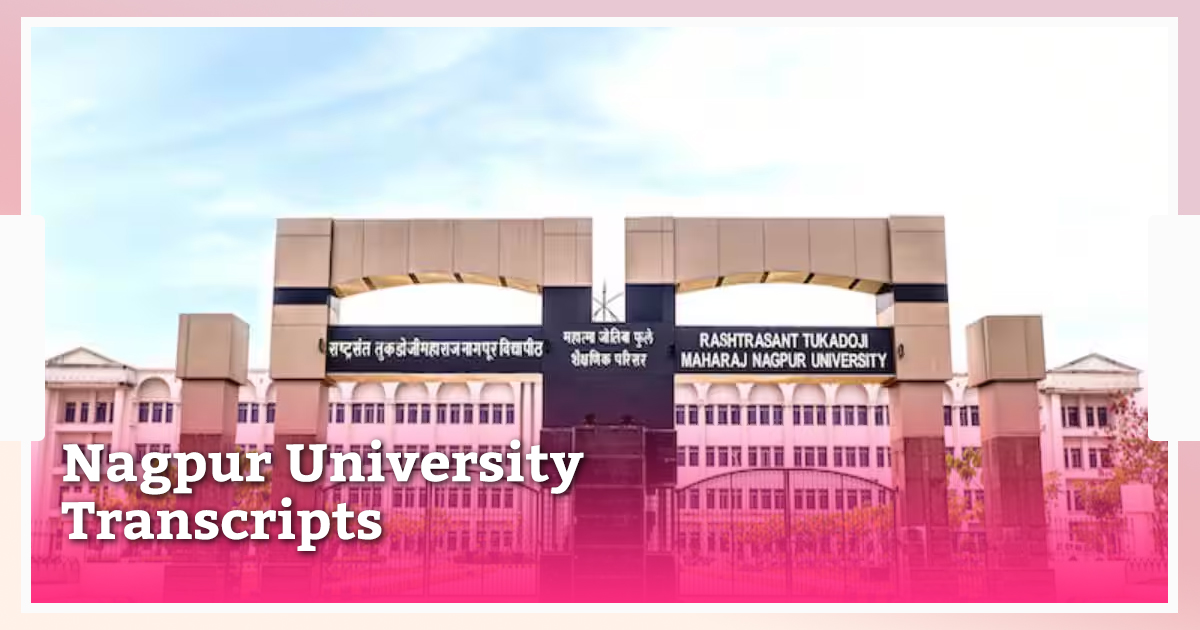
Rashtrasant Tukadoji Maharaj Nagpur University (RTMNU), located in Nagpur, Maharashtra, is renowned for its comprehensive range of undergraduate, postgraduate, and doctoral programs. For students and alumni aiming to further their education or seek global career opportunities, obtaining official transcripts is essential. This guide will walk you through the process of procuring transcripts from Nagpur University and highlight how World Document Services (WDS) can streamline this process.
Need help with your Nagpur University Transcript? Contact Us Now!
Why Transcripts from Nagpur University are Essential
Transcripts are official records that provide a detailed account of a student’s academic performance, including courses taken, grades received, and degrees conferred. These documents are crucial for:
- Further Education: Required for applications to universities and colleges for higher studies.
- Employment: Employers often request transcripts to verify educational qualifications.
- Immigration: Necessary for visa applications and other immigration processes that require proof of educational credentials.
Read more: Top Benefits of Using Electronic Transcripts for Your Educational Needs
Steps to Obtain Transcripts from Nagpur University
Step 1: Prepare Your Documents
Ensure you have all the necessary documents ready, including:
- Copies of all semester mark sheets.
- Degree certificate.
- Valid identification proof (such as Aadhaar card, passport, etc.).
Step 2: Access the Transcript Request Form
Visit the official Nagpur University website to download the transcript request form. Alternatively, you can obtain this form from the university’s registrar office.
Step 3: Fill Out the Application Form
Accurately complete the application form with all required details. Double-check for accuracy to avoid any delays in processing.
Step 4: Submit the Application
Submit the completed application form along with the necessary documents either online, if the university offers this option, or by mailing them to the university’s registrar office.
Step 5: Pay the Transcript Fee
A fee is required to process the transcript request. This can usually be paid online through the university’s payment portal or via a bank draft. Retain the payment receipt for future reference.
Step 6: Processing and Verification
The university will process your application, which typically takes a few weeks. Ensure you have provided all required information to avoid delays.
Step 7: Collection or Delivery
Once processed, the transcripts can be collected in person or sent directly to the specified address or institution. Specify your preferred delivery method in your application.
Obtaining Duplicate Marksheet and Degree Certificate
For those needing duplicate marksheets or degree certificates, follow these steps:
- File a Report: Report the loss or damage of your documents to the police if necessary.
- Complete an Application: Fill out the duplicate document request form available on the Nagpur University website or from the registrar office.
- Submit Supporting Documents: Include a copy of the police report (if applicable), identification proof, and an affidavit stating the reason for the request.
- Pay the Required Fee: Submit the fee for issuing duplicate documents.
- Processing Time: Allow several weeks for the university to process your request and issue the duplicates.
Read more: Get Transcripts from Rani Durgavati University
The Role of World Document Services (WDS)
World Document Services can greatly enhance the ease and efficiency of obtaining transcripts and other academic documents from Nagpur University. Here’s how WDS can help:
- Complete Management: WDS handles everything from form submission to document collection and delivery.
- Faster Processing: With strong relationships with university officials, WDS ensures quicker processing times.
- Secure Delivery: WDS guarantees the safe and timely delivery of your documents to the specified destination.
Frequently Asked Questions (FAQs)
Q1: How long does it take to get transcripts from Nagpur University?
A: The processing time typically takes a few weeks, but it can vary depending on the university’s workload.
Q2: Can I apply for Nagpur University transcripts online?
A: Yes, you can apply online through the university’s official website if they offer this service. Otherwise, you can mail your application to the registrar’s office.
Q3: What should I do if I lose my marksheet or degree certificate?
A: You should file a police report and then apply for a duplicate document through the university by filling out the necessary forms and submitting required documents.
Q4: How can World Document Services help me get my transcripts faster?
A: WDS handles the entire process from form submission to document delivery, leveraging strong university connections to expedite processing times.
Q5: What payment methods are accepted for transcript fees?
A: Payments can usually be made online via the university’s payment portal or through a bank draft. Always check the university’s specific payment guidelines.
Conclusion
Obtaining transcripts and other academic records from Nagpur University is a crucial step for many students and alumni. By following the steps outlined above and leveraging the services of World Document Services, you can ensure a smooth, efficient, and hassle-free process. Whether you’re advancing your education, starting a new job, or moving abroad, having the right documents is essential, and WDS is here to support you every step of the way.
Download the World Document Services App
For a more seamless experience, download the World Document Services mobile app to apply for transcripts and track the progress of your application:
Page 15 of 28« First«...10...1314151617...20...»Last »









 Call Us
Call Us Mail Us
Mail Us WhatsApp
WhatsApp
